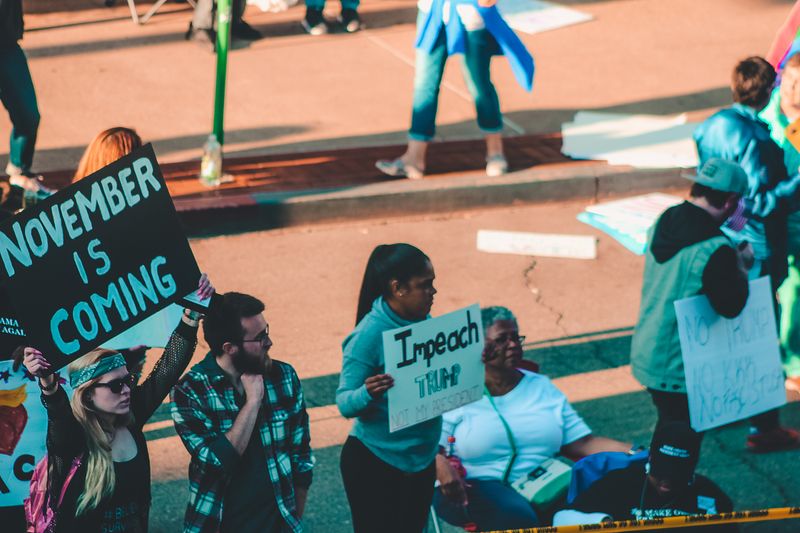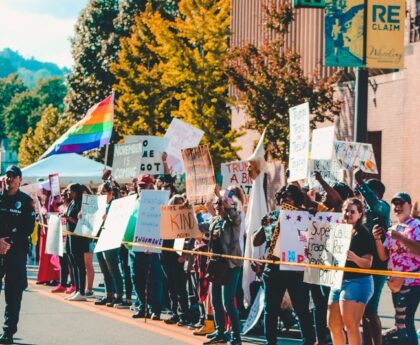Why not treat them as human beings?
Critical examination of Diane Abbott’s controversial migrant tweet
In a recent heated exchange on Nick Ferrari’s Breakfast show, a caller named Moses passionately defended Independent MP Diane Abbott’s response to Lee Anderson’s derogatory comments about migrants. Anderson had made a statement suggesting that those unhappy with the Bibby Stockholm should “f*** off back to France.” In response, Abbott tweeted: “These migrants have indeed f***ed off. To the bottom of the sea.” The tweet has since been deleted, but the controversy it sparked brings to the forefront several important issues surrounding the treatment of migrants and the humanizing of their experiences.
The value of human life
Moses raised a crucial point by questioning the differential treatment given to migrants compared to other individuals in similar tragic situations. He emphasized that if the victims had been Ukrainian or white Europeans, their names, backgrounds, and personal stories would have likely become part of public discourse. This disparity raises questions about the inherent value we place on human life and the biases that may influence our perception and empathy.
Treating migrants as human beings
The heart of Moses’ argument lies in his plea for migrants to be treated as human beings. He implored Nick Ferrari to consider the humanity of these individuals, to go beyond headlines and statistics, and to delve into their motivations and the circumstances that led them to undertake perilous journeys. This call for compassion and understanding resonates deeply with the principles of equality, fairness, social justice, and advocacy for the empowerment and inclusivity of marginalized groups.
The danger of exploiting tragedies for political gain
Nick Ferrari challenged Moses by questioning the appropriateness of Diane Abbott’s tweet. He suggested that using the deaths of 41 people for political gain was exploitative. While it is important to critically assess the methods and intentions of politicians, it is equally important to recognize the danger of diminishing the gravity of the migrant crisis and the loss of human lives. By focusing solely on the controversy surrounding Abbott’s tweet, the larger issues at hand risk being overshadowed.
An editorial on fairness and equality
Fair treatment and equality are pillars of a just society. In the case of migrants, these principles are often obscured by deep-rooted prejudices and systemic biases. The unequal coverage and empathy extended to victims depending on their race or nationality highlights the urgent need for change. We must strive to dismantle discriminatory frameworks that perpetuate injustice and risk dehumanizing those seeking refuge and a better life in new lands.
Our responsibility as a society is to listen to the voices of those who are marginalized and provide them with platforms to humanize their stories. By doing so, we can challenge the prevailing narratives that drive discrimination and make strides towards a more inclusive and compassionate world.
Advice for fostering inclusivity and fairness
To foster inclusivity and fairness, individuals, communities, and governments must take proactive measures. Here are some key actions we can all undertake:
1. Education and awareness:
Promote education and disseminate accurate information about migration. Combat misconceptions, stereotypes, and unfounded fears by providing evidence-based knowledge.
2. Policy reforms:
Advocate for policy changes that prioritize the fair and humane treatment of migrants. Ensure that laws and regulations protect their rights and dignity.
3. Empathy and understanding:
Encourage conversations that humanize migrants and promote empathy. Listen to their stories, acknowledge their struggles, and challenge preconceived notions.
4. Media responsibility:
Hold the media accountable for their portrayal of migrants. Encourage balanced reporting that sheds light on the complexity and individuality of their experiences.
5. Grassroots initiatives:
Support grassroots organizations and initiatives that provide resources, support, and advocacy for migrants. Collaborate with these organizations to amplify their impact.
6. Personal reflection:
Engage in introspection and examine personal biases and prejudices. Challenge long-held beliefs and actively work towards dismantling stereotypes and discriminatory attitudes.
By taking these collective actions, we can move closer to a world that treats all individuals, regardless of their background, with fairness, respect, and dignity.
Keywords: Equality, human rights, fair treatment, social justice, discrimination, advocacy, empowerment, inclusivity, diversity, gender equality

<< photo by Polina Zimmerman >>
The image is for illustrative purposes only and does not depict the actual situation.
You might want to read !
- How Rape is Utilized as a Weapon in the Conflict-Ridden State of Manipur, India
- The Hidden Dangers: Unveiling Ukraine’s Cluster Bomb Issue
- The Terrifying Implications of Sentencing a US Rapper to Death
- Did Terry Christian Cheat on Celebrity Masterchef? Exploring Accusations from Fans
- Leicester’s Dominance Continues as They Cruise Past Burton in Carabao Cup Quarterfinals
- Remembering Simon Carlyle: A Tribute to the Talented Writer of Two Doors Down
- Costa Coffee Stands Firm: Defending Equality and Inclusion with Post-Op Trans Man Mural
- Greta Thunberg: Potential imprisonment for protesting
- Protesters Disrupt London Pride Parade in Anti-Oil Demonstration
- The Battle of the Promotion Contenders: A Clash Between Wrexham and Wigan Athletic
- “Heated Exchange: Sadiq Khan Condemns Lee Anderson for Fueling Hatred with ‘Back to…”
- Oh Shut Up, Ramsdale! The Labyrinth of Sportsmanship: A Closer Look at Aaron Ramsdale’s Controversial Statements
- One Foot in the Grave star Doreen Mantle passes away at the age of 97: Celebrating a life filled with talent and laughter
- Examining the Tragic Demise of Sinead O’Connor: Delving into the Investigation, Last Moments, and Legacy
- The Burden of Regret: Reflections from the Father of a Serial Killer’s Victim
- Title: Exploring the Tragic Devastation: Six Lives Lost as Wildfires Ravage Maui
- “Sinead O’Connor’s Trailblazing Legacy Shines at Emotional Funeral Gathering”
- Glockenbach and Ella Henderson Collaborate on Empowering New Release ‘Lifeline’
- Don’t Sleep on Lee Anderson: Downing Street’s Support for Controversial Tory Deputy Chairman
- The Rising Matchup: Colombia Takes on Jamaica in Women’s World Cup 2023
- Unveiling a Profound Sense of Pride: A Moment of Unprecedented Magnitude
- Remembering Robbie Robertson: Immortalizing the Legacy of a Band Member
- Unmasking the Culinary Controversy: Terry Christian’s Accusation of Cheating
- International Cat Day 2023: Exploring the Furry World of Our Beloved Feline Companions
- Toxic Masculinity vs Gender Equality: Unpacking the Celebrity MasterChef Controversy
- BBC Presenter Reprimanded for Sexist Remarks Towards Female Cricketer
- Breaking Barriers: TNT Sports Makes History with All-Female Line-Up for Football Coverage




